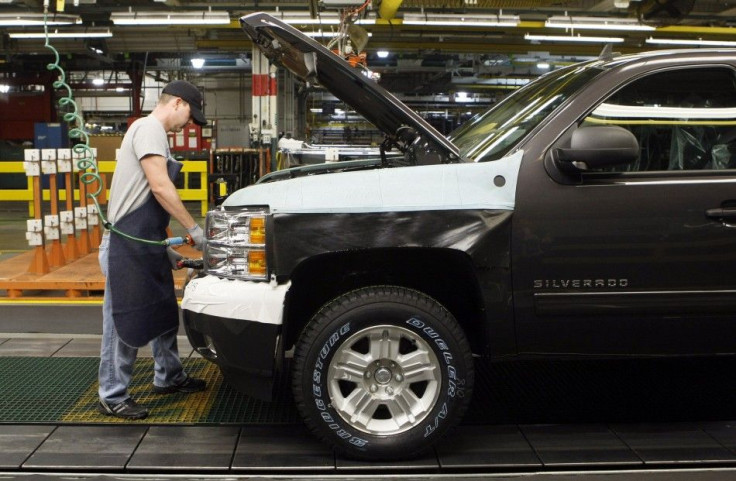U.S. government wants to sell its shares in General Motors for political reasons

Uncle Sam wants to get out of the car business, politically speaking.
The U.S. government owns a remaining 27% share in General Motors, the company it took majority stake in when the company filed bankruptcy only to sell a portion of those shares when the Detroit automaker took its stock public with an IPO late last year, becoming the biggest offering for a stock in U.S. history at the time.
With GM's public offering in November 2010, the federal government's ownership in GM was reduced from 61% to 33%. Since then, the government's ownership position has been further reduced.
Still, owning 27% of GM (NYSE: GM) as the nation enters what appears to be setting up as a hotly-contested if not heated presidential election season is not what the federal government wants, however. Politically speaking, Uncle Sam wants to get out of its ownership of GM so the issue isn't on the table during the presidential campaign.
But not so fast, says an industry analyst. Standard & Poor' analyst Efraim Levy wrote in a recent report that for financial reasons the U.S. government should not move too fast in getting out of its 27% ownership with GM. For financial reasons, he wrote, the governemnt should stick around.
"Like a fiduciary," Levy wrote, "the U.S. Treasury should try to maximize the return on its investment for its shareholders, in this case the U.S. taxpayer"
Levy's reasoning is this: He has a 12-month target price on GM's stock at $42 per share. Today, GM's stock is trading at $32.27. if sold immediately, the federal government would get about $17 billion back. If sole at $42 per share, as Levy targets, the federal government would get back roughly $21 billion.
The stock could always go down, however, even though the company's fortunes have been broadly positive since it emerged from bankruptcy. Throughout the year, though, GM's stock has lost value, opening 2011 at $37.32 per share. Some industry watchers also believe automotive sales are likely to be flat over the next two years, and GM even recently warned of softening market conditions.
Levy thinks, however, GM's stock is going up and that elected officials in Washington should overlook the government's ownership as a political problem.
"Normally," he wrote, "a government bailout of a struggling company, even one we consider as economically and strategically important as GM, is against free market principles and should be avoided."
But, Levy said "the government could not risk not saving GM because of the likelihood...that an uncontrolled GM would have had a dramatic ripple effect on then then-struggling U.S. economy, dragging down other automakers and suppliers and extending its crippling vortex beyond the auto industry."
For now, the federal government is maintaining its 27% ownership position but sources suggest nobody in Washington wants the risk of maintaining ownership, only to see the share price fall further amid the height of the presidential election.
© Copyright IBTimes 2024. All rights reserved.




















